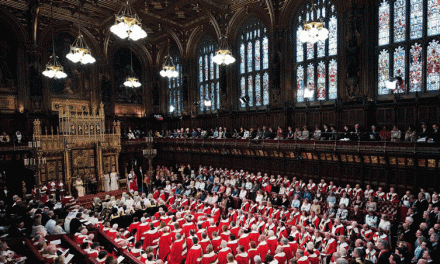It is well known that the aviation industry is not pleased with the EU Directive integrating all flights departing or landing in the EU, including intercontinental flights into the EU's emissions trading system (ETS). All airlines flying in and out of the EU, including airlines from third countries are required to comply with the EU Directive since 1 January 2012. Under the Directive, all airlines flying in and out of the EU are required to report on their verified CO2 emissions (2009-2013) by April 2013. Consequently, if airlines refuse to apply Community law they would be subject to sanctions including fines or, as a last resort, a EU flight ban, “in the case of a permanent and constant infringement”.
The US as well as Australia, Canada, China, Japan, India, South Korea (including their airlines), even before the directive has been adopted, have shown their opposition to the EU’s ETS. In fact, the Air Transport Association of America, American Airlines Inc., Continental Airlines Inc. and United Airlines Inc. (collectively ‘ATA and others’), contested the measures transposing Directive 2008/101 in the UK, and brought proceedings against the Secretary of State for Energy and Climate Change before the High Court. They argued that the EU infringed several principles of customary international law and various international agreements, namely the Chicago Convention, the Kyoto Protocol and the Open Skies Agreement because it imposes a form of tax on fuel consumption, as well as certain principles of customary international law as it seeks to apply the allowance trading scheme beyond the European Union’s territorial jurisdiction. The High Court referred the matter to the ECJ, but, in December 2011, the ECJ confirmed the validity of such directive.
Despite the ECJ’s ruling, the US as well other countries such as China and India are not willing to give up their fight to exclude their airlines from the EU's ETS. They see the ETS as a tax imposed by the EU, which interferes in their sovereign affairs.
In the meantime, India has followed China’s decision to ban its airlines from participating in the EU ETS. In fact, Chinese and Indian airlines failed to meet their deadline to report to the EU how much carbon dioxide they emitted in 2011. These airlines are therefore likely to face sanctions from Brussels, but, on the other hand, they are likely to retaliate with measures against European airlines.
The US and Russia are also considering prohibiting their airlines to participate in the scheme. In fact, the US congress is set to pass a bill, next month that would forbid US airlines to participate in the EU’s ETS. The House of Representatives has already adopted the bill. It is important to note that the US is also considering whether to file a United Nations challenge to the ETS inclusion under the Chicago Convention on aviation.
The US, China, India, Russia and other countries, the so called “coalition of the unwilling”, held talks in Moscow and Delhi on potential retaliatory measures against the EU inclusion of airlines in the ETS. They signed a declaration opposing the EU legislation and asked Brussels to suspend it. These countries have recently met again in Washington and reiterated their opposition to the EU scheme and vowed to work through the International Civil Aviation Organization for a global solution.
Brussels and several countries are on the brink of a trade war over the EU inclusion of airlines in the ETS. However, the European Commission refuses to suspend the damaging legislation. According to the Council Conclusions “A number of member states took the floor to express their concerns about retaliatory measures that could affect EU companies or airlines.” Nevertheless, “It was stressed that the EU should stay united on this issue and continue to seek a global agreement through the ICAO.” Hence, Brussels is not planning to change its position. According to the European Commission’s director-general for climate, Jos Delbeke, the EU would solely suspend the inclusion of aviation in the ETS if there were a global emissions-reduction scheme agreed by ICAO.


As above-mentioned, China and India have already banned their airlines from participating in the EU ETS.
According to Bloomberg the US senate approved today a bill whereby US airlines would be also barred from participating in this scheme.